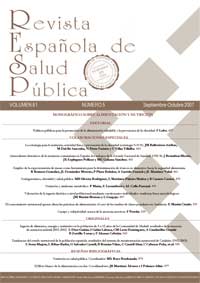Power Relations and Democracy in Health Councils in Brazil: a Case Study
Abstract
Background: Social participation is fundamental for the consolidation of the Brazilian Health Reform, with the aim of promoting equity, universality and democratization of access to health, and the health councils are vital forums for its concretization. However, the authoritarian culture of our institutions makes effective participation in these organizations difficult. The objective of this work was to analyze the power relations which permeate the practices of a health council, seeking to understand discourse as a builder of participation in health. Methods: A qualitative case study in a municipal health council in a Brazilian town. The discourse analysis was carried out on the minutes of two management terms, legal documents, interviews and observation during meetings. Results: The quantitative presence of the user representatives does not correspond to the quality of their participation. The governmental sector uses most of the speaking turns, establishing monological relations, based on the a lack of symmetry determined by level of education, professional training, social status of the councilors and the relations of knowledge and power present in the health institutions. We identify resistances coming from the user sectors and the health professionals. However, these are scattered, fragile and not very important. Conclusions: The current practices that exist can, contrarily, go against democracy, for which is necessary to invest in the empowerment of councilors and users in the day-to-day reality of health care.Downloads
Published
2008-03-17
Issue
Section
ORIGINALS

